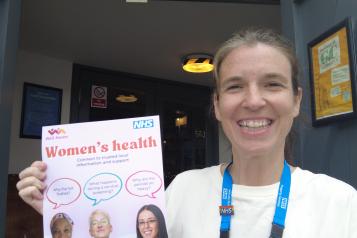CQC findings into mental health rights

The regulator of health and adult social care is concerned that people across England are being detained under the Mental Health Act without their legal rights being discussed or explained to them, without being fully assessed for their willingness and ability to consent to their treatment, and without always having easy access to appropriate independent advice.
In its fifth annual report on the use of the Mental Health Act out today (Thursday 5 February), the Care Quality Commission (CQC) has found that 16% of the records it examined on its monitoring visits did not state that staff had given patients information about their legal rights, and that 18% did not state that staff had discussed these with them.
Last March, 23,531 people were subject to the Mental Health Act and so this could have affected as many as 4,200 of the people.
Although this is an improvement from the previous year (when 29% of the records that were inspected did not contain this information), more needs to be done.
Also, CQC has found that consent to treatment is an ongoing problem. Around a quarter of the 3,342 records that CQC checked during its visits in 2013/14 did not contain evidence that staff had assessed whether their patients were willing to consent to treatment after they had been admitted.
To add to these concerns, CQC found that some mental health facilities may not be offering people who have been detained under the Act easy access to independent advice. Around a third of the wards that CQC visited in its monitoring of the Act did not provide patients with information about the local independent mental health advocates who could offer this advice and support.
Only 14% of local authorities that responded to a survey could confirm that they had assessed the need for independent advocacy in their area.
Also, conversations that CQC had with carers’ and families’ revealed that many do not understand their legal position of their loved ones, even weeks and months after they had been detained.
CQC has used these findings from 2013/14 to develop its new way of inspecting and regulating mental health services across England. Also, the findings have helped to shape the new revised Code of Practice, which published last month and will be the basis for the standard of care that CQC expects for people who are cared for under the Act. CQC will carry out further work to understand the impact of insufficient independent mental health advocacy services could be having on the quality of care.
Dr Paul Lelliott, Deputy Chief Inspector of Hospitals (lead for mental health) at the Care Quality Commission, said:
“Under the Mental Health Act, healthcare workers have the power to deprive people of their liberty and to compel them to take treatment that they do not want. It is essential in a society that respects human rights that every possible safeguard is in place to protect and empower people who are affected by the MHA.
“It is unacceptable for any patient detained under the Mental Health Act or made subject to a community treatment order to be unsure of their legal rights or to not be told immediately how they can obtain independent advice and advocacy.
Doctors and nurses do not treat people for a physical illness without explaining what is involved and asking for their consent. The same should apply to the treatment of people detained under the MHA. Staff should engage in a full discussion of the treatment plan and ascertain whether the patient is able and willing to consent.
The findings within our report should be a strong wake-up call to those who commission and manage these services. We expect to see improvements.
We have already used these findings to improve our inspection model for services that use the MHA and to strengthen the Code of Practice so that people affected by the Act can receive better care.”
The Mental Health Act states that people detained in hospital or on a community treatment order should be given certain information when this happens, such as on the section of the Act that they are being detained under, their right to apply for an appeal or to make a complaint, and the rules around their consent to treatment. Also, the Act states that people should have access to Independent Mental Health Advocacy, which is an extra and impartial way to help detained patients understand their rights and treatment.
Last year, CQC rolled out its new way of inspecting and monitoring mental health services across England, which includes routinely investigating whether people subject to the Act are assessed, cared for and treated as they should be, and increasing opportunities to meet with people affected by the Act. Also, CQC is routinely collecting and assessing information of the governance systems and processes that providers have in place for the Act, such as on staff training and how services protect patients’ rights.
CQC has said that continued breaches of the Act will affect the ratings that it awards to services of Outstanding, Good, Requires Improvement and Inadequate so that the public has clear information on the performance and quality of their services, and to encourage them to improve.


